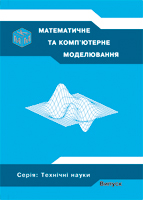База даних як засіб отримання адаптивної моделі предметної області зі слабоформалізованими об’єктами
DOI:
https://doi.org/10.32626/2308-5916.2025-27.149-164Анотація
Зростаюча динамічність сучасних бізнес-середовищ вимагає розробки адаптивних інформаційних систем, особливо для предметних областей зі слабоформалізованими об’єктами. Традиційні статичні моделі даних часто виявляються неефективними для адекватної підтримки таких швидкозмінних умов, що призводить до значних втрат при інформаційному супроводі проєкту через потреби його переробки. Пропонується інноваційний підхід, орієнтований на використання баз даних в якості адаптивних моделей предметної області. Методологія базується на застосуванні баз даних з гнучкою схемою, зокрема NoSQL (документних та графових), які здатні обробляти великі обсяги швидкозмінних, неструктурованих або напівструктурованих даних, пропонуючи значно більшу масштабованість та адаптивність порівняно з реляційними базами даних. Додатково інтегруються принципи адаптивних об’єктних моделей, де класи, атрибути, зв’язки та поведінка представлені як метадані, що інтерпретуються під час виконання, дозволяючи експертам предметної області змінювати модель в реальному часі. Метою дослідження є розробка адаптивної моделі для предметної області «Видавництво університету», яка динамічно коригується відповідно до змін вартості матеріалів та норм їх споживання. Проблема полягає в тому, що традиційне моделювання не може адекватно відобразити притаманний динамізм та слабоформалізовану природу реальних бізнес-процесів, що призводить до дорогих та трудомістких модифікацій системи. Запропонований механізм реалізує неперервний цикл зворотного зв’язку, який автоматично виявляє та коригує розбіжності між розрахунковими та реальними витратами на витратні матеріали. Це є значним відходом від традиційних «жорстких» моделей, перетворюючи базу даних на модель предметної області, як активний, самооптимізуючий компонент адаптивної системи. Такий підхід підвищує гнучкість, точність та операційну ефективність в управлінні складними бізнес-процесами, що розвиваються, забезпечуючи неперервне уточнення внутрішніх параметрів системи та зменшуючи потребу в ручному втручанні
##submission.downloads##
Опубліковано
Номер
Розділ
Ліцензія
Authors who publish with this journal agree to the following terms:- Authors retain copyright and grant the journal right of first publication with the work simultaneously licensed under a Creative Commons Attribution License that allows others to share the work with an acknowledgement of the work's authorship and initial publication in this journal.
- Authors are able to enter into separate, additional contractual arrangements for the non-exclusive distribution of the journal's published version of the work (e.g., post it to an institutional repository or publish it in a book), with an acknowledgement of its initial publication in this journal.
- Authors are permitted and encouraged to post their work online (e.g., in institutional repositories or on their website) prior to and during the submission process, as it can lead to productive exchanges, as well as earlier and greater citation of published work (See The Effect of Open Access).

